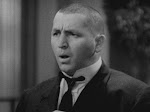Re: "Fantasea" show at Shedd Aquarium.
First, I refer you to the accurate account offered by Irina H. on Yelp.com (with the exception that in the show I saw today, the red tailed hawk did not fly at all, just the person dressed like a hawk. Really. Man does his job suck.)
This is a terribly conceived "show" and truly is an embarrassment to the city of Chicago. As other reviewers have mentioned, there is much to love about the Shedd, and many of the exhibits are breathtaking. This is a place to go to see wonders of nature, to learn a little, to experience the REAL, to actually get away for a little while from screens and digitized virtual realities and special effects.
Evidently Shedd management thinks differently -- that people would rather look at images projected on a screen rather than enjoy what was one of the best lake views the city had to offer (from the amphitheater seats looking out -- the windows are now masked by a large scrim on which is projected much of this horrendous show.) They seem to have lost sight of the reason for the original construction of that wonderful space: to take advantage of the unique natural resource at the back door.
After watching a video for about 15 minutes about how they intend to "let the animals talk for themselves" (!) we were subjected to a stupefyingly bad procession of professional biologists and animal trainers, forced to wear ridiculous costumes as part of this farce, occasionally putting the dolphins and belugas through their routines. They couldn't have come up with a better parody of this type of shmaltz - complete with rising crescendos of violins and kettle drums - had they tried.
The audience was silent throughout the 4:00 show today, despite being encouraged at the outset to clap, laugh at funny things (like...?) or otherwise show how much fun they were having. Nothing. What's more, the entire educational portion, where the trainers used to explain their actions and what the dolphins' movements signify, was eliminated entirely.
This is a collosal waste of time, not to mention millions of dollars devoted to the renovation. What were they thinking?
First, I refer you to the accurate account offered by Irina H. on Yelp.com (with the exception that in the show I saw today, the red tailed hawk did not fly at all, just the person dressed like a hawk. Really. Man does his job suck.)
This is a terribly conceived "show" and truly is an embarrassment to the city of Chicago. As other reviewers have mentioned, there is much to love about the Shedd, and many of the exhibits are breathtaking. This is a place to go to see wonders of nature, to learn a little, to experience the REAL, to actually get away for a little while from screens and digitized virtual realities and special effects.
Evidently Shedd management thinks differently -- that people would rather look at images projected on a screen rather than enjoy what was one of the best lake views the city had to offer (from the amphitheater seats looking out -- the windows are now masked by a large scrim on which is projected much of this horrendous show.) They seem to have lost sight of the reason for the original construction of that wonderful space: to take advantage of the unique natural resource at the back door.
After watching a video for about 15 minutes about how they intend to "let the animals talk for themselves" (!) we were subjected to a stupefyingly bad procession of professional biologists and animal trainers, forced to wear ridiculous costumes as part of this farce, occasionally putting the dolphins and belugas through their routines. They couldn't have come up with a better parody of this type of shmaltz - complete with rising crescendos of violins and kettle drums - had they tried.
The audience was silent throughout the 4:00 show today, despite being encouraged at the outset to clap, laugh at funny things (like...?) or otherwise show how much fun they were having. Nothing. What's more, the entire educational portion, where the trainers used to explain their actions and what the dolphins' movements signify, was eliminated entirely.
This is a collosal waste of time, not to mention millions of dollars devoted to the renovation. What were they thinking?

